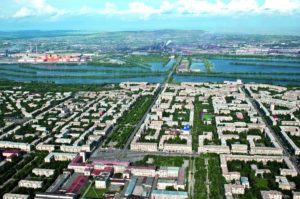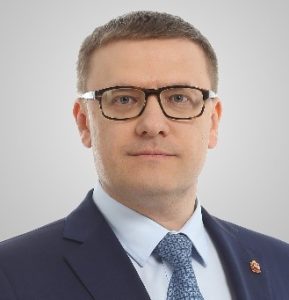
The Russian Chelyabinsk district, including the cities Chelyabinsk, Magnitogorsk and Zlatoust, are moving towards international guidelines concerning air quality standards.
The regional government of Chelyabinsk has announced it will join the BreatheLife campaign and reduce air pollution by at least 20 per cent by 2024. The plan includes reducing emissions in transport, household waste management, the chemical industry, green electricity generation and energy efficiency.
Further measures include establishing a single center for the collection and processing of data from state networks, and providing local stations with proper air monitoring equipment
 “We commit to undertake activities to reduce emissions of contaminants into air, increasing the number of ecological public transport, improving solid waste management, promoting clean energy and supporting the goals of the BreatheLife campaign,” said Minister of Ecology of Chelyabinsk region, Sergei Lihachov
“We commit to undertake activities to reduce emissions of contaminants into air, increasing the number of ecological public transport, improving solid waste management, promoting clean energy and supporting the goals of the BreatheLife campaign,” said Minister of Ecology of Chelyabinsk region, Sergei Lihachov
At present, air quality monitoring is carried out in Chelyabinsk region, particularly the major cities such as Chelyabinsk, Magnitogorsk and Zlatoust. Now, the regional government is building a network for environmental monitoring as part of the State’s environmental objectives..
From 2020 to 2024, the government aims to install automated observation and reporting systems, following the successful installation of five air quality control stations in the city of Chelyabinsk in 2020.
“We want to improve the system so that it works on the same principle that is used on the roads for photographic recording of violations. We want to make our monitoring system automatic,” said Governor of the Chelyabinsk region, Aleksey Teksler.
In terms of waste management the regional leadership plans to increase investment in municipal and national waste operations, dispose of landfill gas, improve solid waste collection and separation.
In regards to industry, improved coke ovens and fugitive emission control from different industries will be promoted. While in transportation, Chelyabinsk will upgrade public transport systems and promote green modes of transport, such as soot-free public transport, electric and hybrid busses, bicycles and bike lanes.
A regional information and analytical centre for the collection and processing of data from the state of Chelyabinsk has already been established. The network is equipped with monitoring devices capable of automatically transmitting air pollution data to a single data warehouse for analysis and policy decisions.
The information collection system includes data from the state, regional and local levels of ambient air quality control systems from the state and regional observation networks..
“The WHO Air Quality Guidelines will surely complement the measures that are already in action, and the joint efforts of the Administration, scientific experts, business representatives and the Russian ecological society will eventually improve overall health and environmental quality,” said the representative of the Russian ecological society, Dmitrii Savelev.